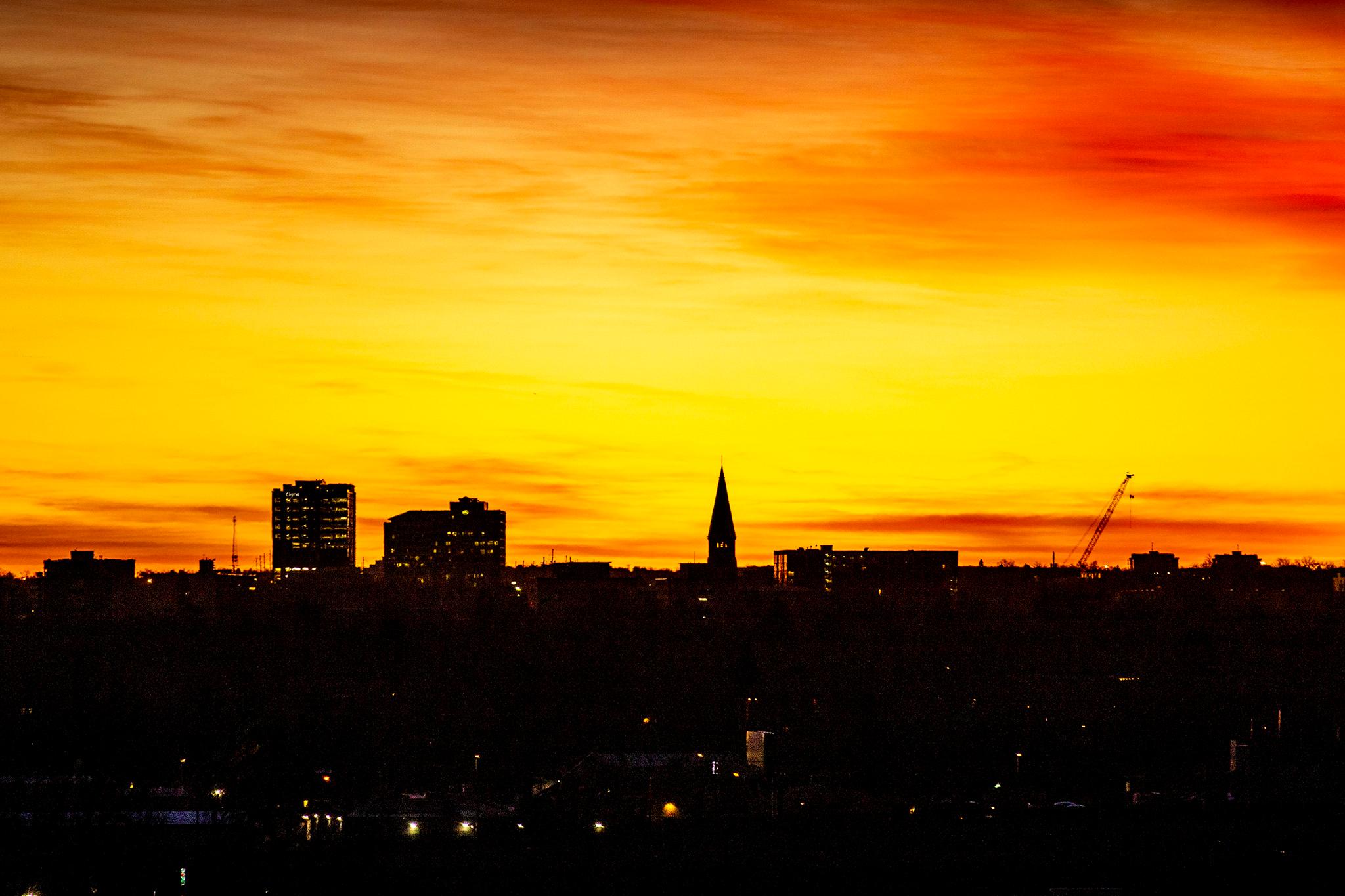Unless you've been living under a rock (hopefully a cool one), you may have noticed that Denver has been pretty hot lately.
On July 18, Denver recorded its fourth 100-degree day, putting the year 2022 in a three-way tie for sixth place on the National Weather Services list of "Greatest Number of 100 Degree Days by Year."
Since 2017, Denver has recorded more and more 100 degree days. Last year, we had five. And summer isn't over.
So we called up Greg Hanson, a meteorologist with the NWS Denver/Boulder office, and we asked him a few questions.
TLDR: More hot days are coming, so we better start adapting.
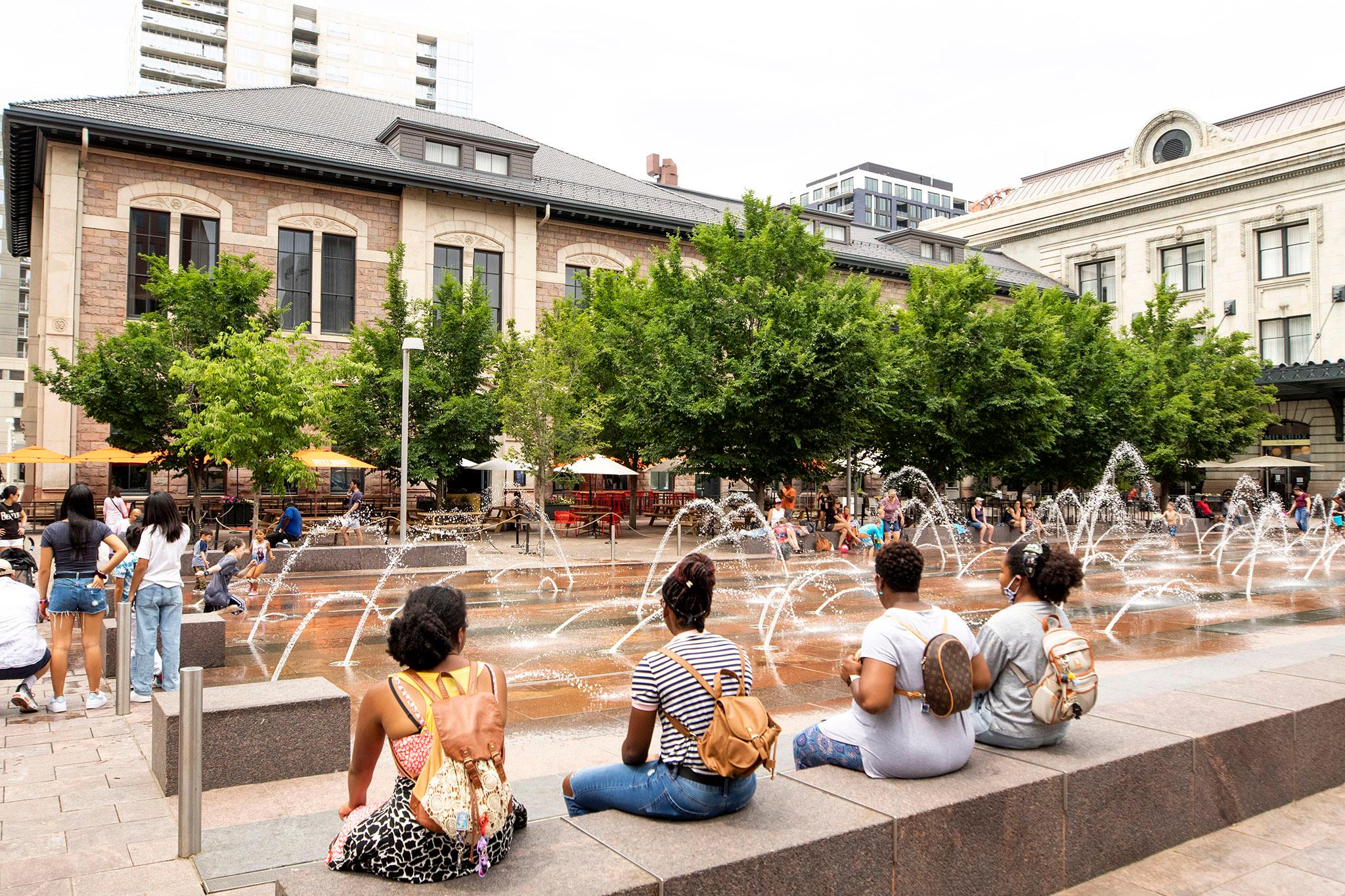
This interview has been edited for clarity.
DM: So, tell me a little bit about Denver's heat increase. How has the heat in Denver changed over the years?
GH: Yes, it has gotten warmer. It's a climate change issue. The West is getting hotter and dryer and we're seeing that in the records. Some of the increase could be due to the urban heat island effect, where you've got more pavement and paved surfaces, but overall we're in a pretty arid and dry, almost high desert environment anyways, so it's mostly due to climate change.
DM: What's the urban heat island effect?
GH: If you're looking at a parking lot versus grass or natural vegetation, that parking lot will heat up more in the sun. It'll absorb more sun. So, in an urban area where you've got a lot more concrete, a lot more hard surfaces that absorb the sun, it makes the ground hotter, which turns around and warms the air above it. In a more natural setting, like an area with vegetation, the heat's reflected or taken up by the plants and used for energy. So, it's just hotter in urban areas because of all the concrete, asphalt and hard surfaces that we humans create. That's why we have initiatives to plant trees, put green roofs on buildings, things like that to kind of tone that down a bit.
DM: So, should we try to get rid of some parking lots?
GH: It's not feasible to get rid of parking lots and things like that. The urban heat island effect is just a product of all of us living here. It's just the overall growth that we've had in the whole metro area up and down the front range here. We've got asphalt shingle roofs, for example. All those surfaces are going to contribute to a little bit more warming than you'd have otherwise but the underlying factor is just the climate change. The climate is getting warmer.
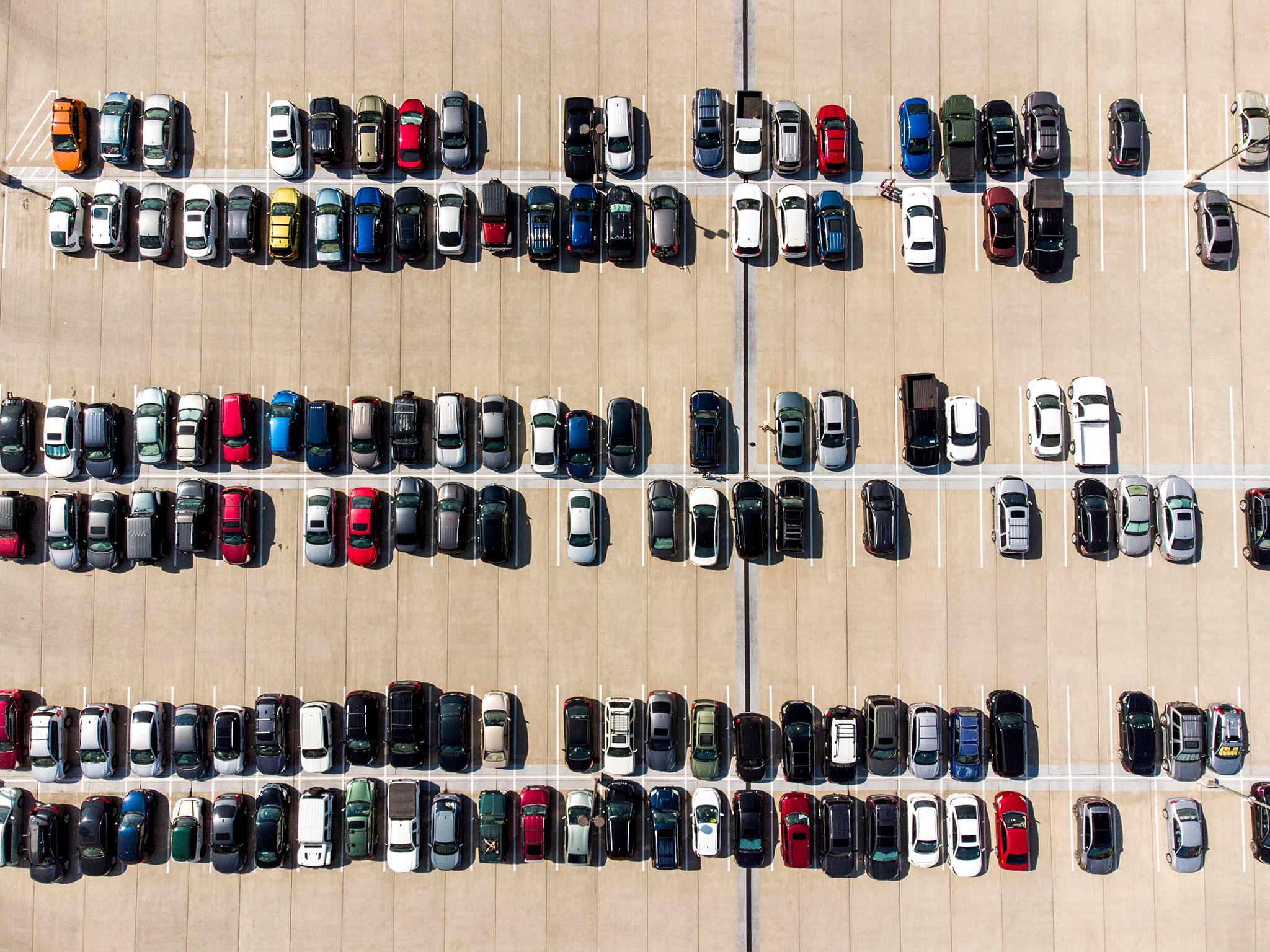
DM: Besides climate change and parking lots, does it also not help that Colorado is kind of closer to the sun than in other places? If it is closer to the sun? I'm new to Denver and I feel like I am a part of the sky sometimes.
GH: I like that. Part of the sky. Yeah, we are. We're higher. We are the mile high city. So, the atmosphere over us is actually thinner than say at sea level. So along the coast, that thicker atmosphere does provide a little bit more protection of UV rays for sunburn and things like that. It filters out the sun just a little bit more. So yeah, we feel the sun's intensity more here and definitely the UV rays are more intense here. Wear sunscreen.
DM: I feel like with our closeness to the sun, even in the shade it is still hot. Is that true?
GH: Shade does provide a lot of relief from the sun. Like we talked about, there's less atmosphere over us, so getting into the shade can provide quite a bit of relief. When we measure the temperature, we measure in the shade. If you put a thermometer out in the sun, it's going to spike up to, so to get a consistent temperature we use a shaded measurement. For our area, getting into the shade, staying hydrated will really go a long way towards keeping you safe from the heat.
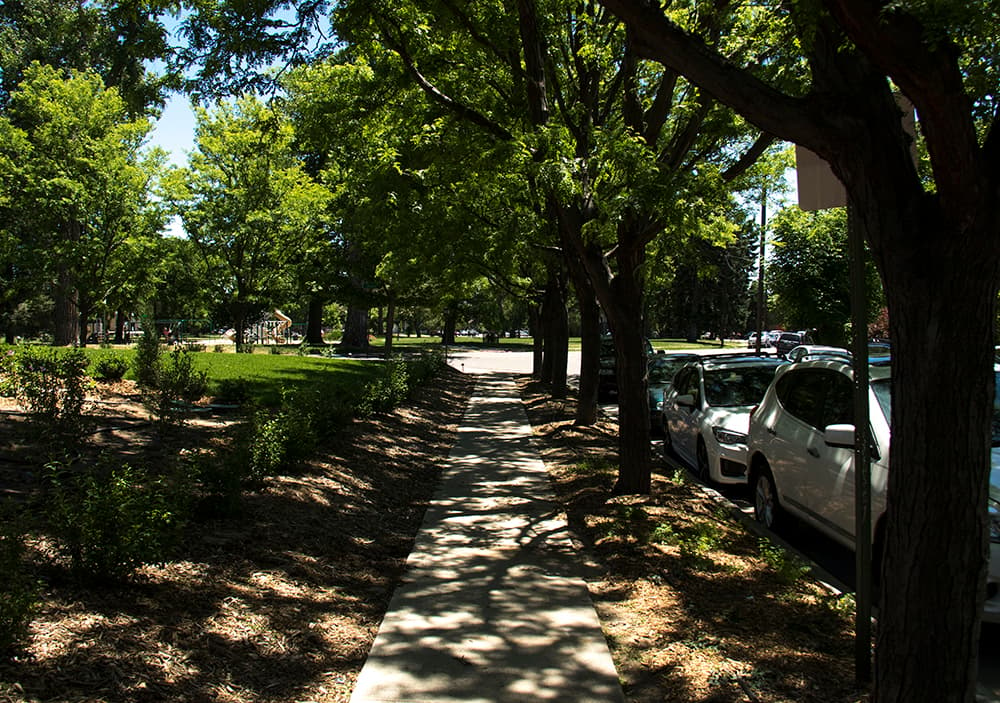
(Kevin J. Beaty/Denverite)
DM: Does our proximity to the sun also contribute to the dry heat versus the humidity back East?
GH: It's not so much the proximity to the sun but just the elevation and where we are in the country. We're kind of blocked off from the really moist air that you see further east on the plains. That's because the winds from the Gulf of Mexico blow [the humidity] up into the central part of the U.S. It's almost like a pool of water or a dish of water, it's hard to push that uphill to where we are. Even with the thunderstorms, there will be a decent amount of moisture around but it still doesn't feel like anything east.
DM: Can you settle the dry heat versus humid heat debate? Can you say which is better from a scientific standpoint?
GH: Not from the Weather Service. No, that comes down to preference. There may be some physiological things about if dry heat or wet heat is better for your body or skin but yeah, that's way outside my area of expertise... but with the drier air, your body is better at cooling itself off because the sweat on your skin evaporates more freely, where in more humid areas you sweat and you stay wet. If you can get out of the sun and stay hydrated and let your body do what it does to compensate, you can get better relief.
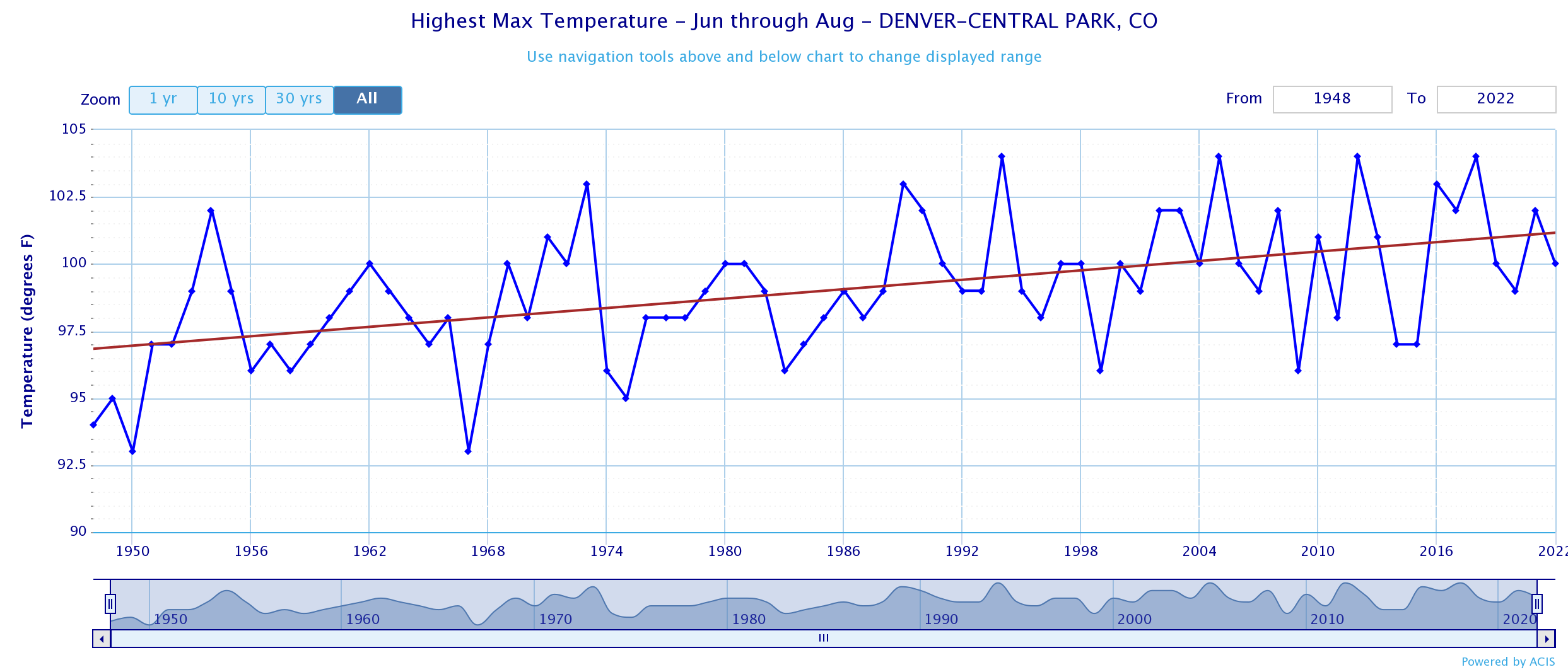
DM: With the increase in hotter days, what can Denver expect for the future?
GH: I don't think we'll see the absolute temperature increase. Like if we get up to 100 now, it's not like we're going to get to 110 in 10 years but I think what we'll see is more frequent occurrences of these hot temperatures. We're already seeing more days that are above 90 degrees but not necessarily setting a new high temperature that's higher than the record 103 that we have now. The frequency of occurrence is going to increase, not the absolute highest temperature that we have. With that heat, we'll also see warmer overnight low temperatures, so maybe not as easy to cool down at night as what we're used to. The seasons will get longer, even when we're not talking heat, just warm in general. Our last snowfall will tend to be earlier in the spring and our first snowfall will tend to be later. There's always outliers. We can still get snow in May like we had this year but overall, we're going to see that winner season, that snow season, shrink with just lower temperatures overall.
DM: What does the increase in heat frequency do to Denver?
GH: It'll stress various systems that will have to change and adapt to accommodate the heat. Populations sensitive to heat will increase because they'll be exposed to heat more. Cities may have to do more to cool down residents. If you have warmer temperatures, you've got more evaporation and more transpiration through plants, so things like soil moisture will tend to be drier, which means drought will increase. So we'll need more water supply.
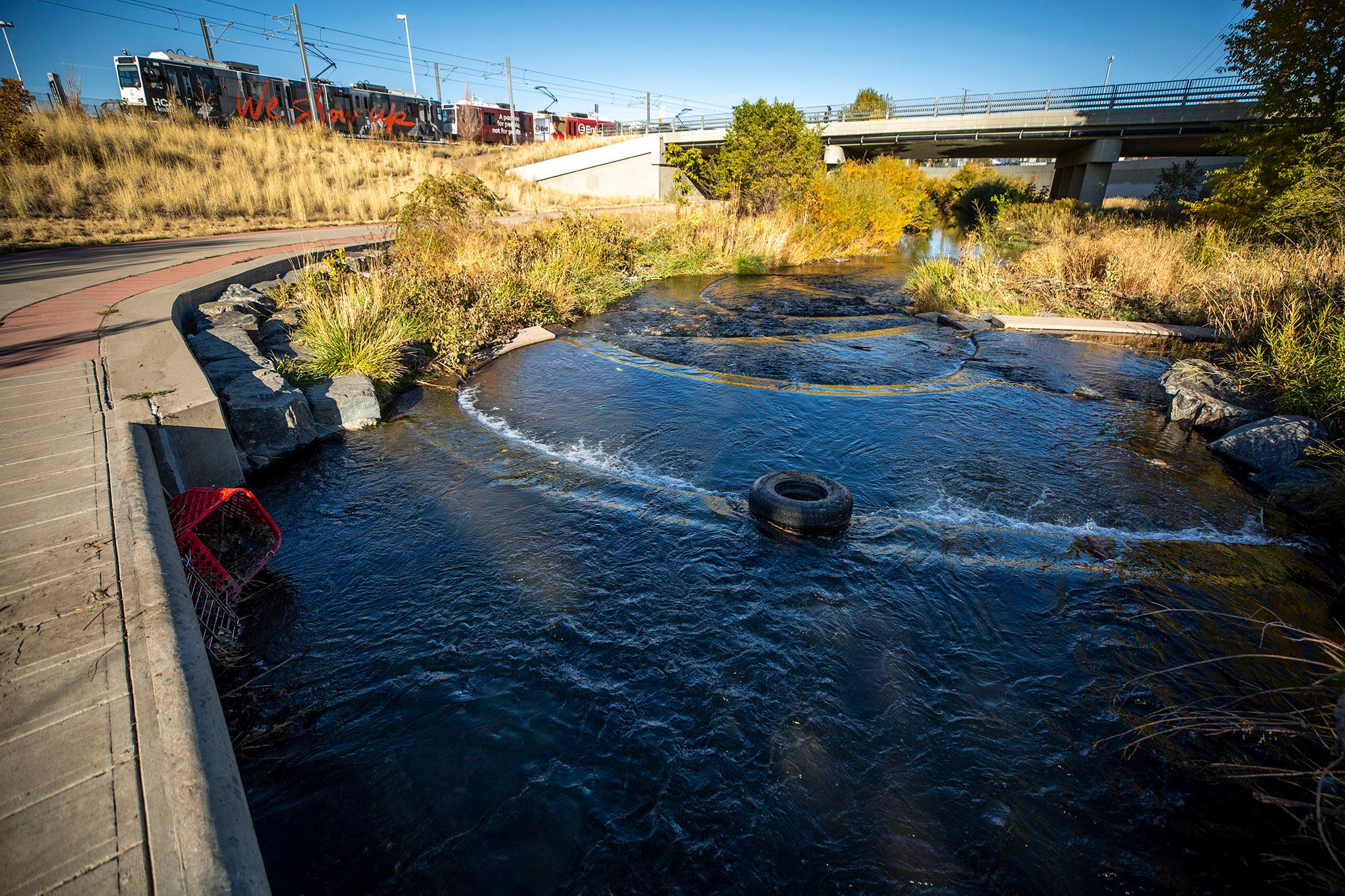
DM: Will we run out of water? What is drought?
GH: I can't really answer the water question but planners will have to take that question into consideration. There's a few different ways to classify drought. One of them is just looking at precipitation levels. Some of it's looking at the agricultural impacts. Are crops failing and not doing well because of the dry conditions? You can have a hydrologic drought, a water supply drought, where there's not much water in rivers and streams.
DM: What can Denver do about any of the heat? Are we in a "it is what it is" situation? Can we slow any of it down?
GH: That's part of the global climate change conversation. In the interim, people will have to adapt. Be aware that we're going to have more hot days and prepare for that. The summers that we're used to, even 20 years ago, aren't the same as what we're getting now. People just need to be more aware of the heat. Understand what your body goes through and the warning signs of some heat illnesses. You know, going from sweaty skin to cool or clammy or even hot, dry skin when you should be sweating, those are clues that your body is overheating. Stay hydrated. Have shade available. Stay out of the hottest part of the day. Anywhere from noon to 4 p.m.
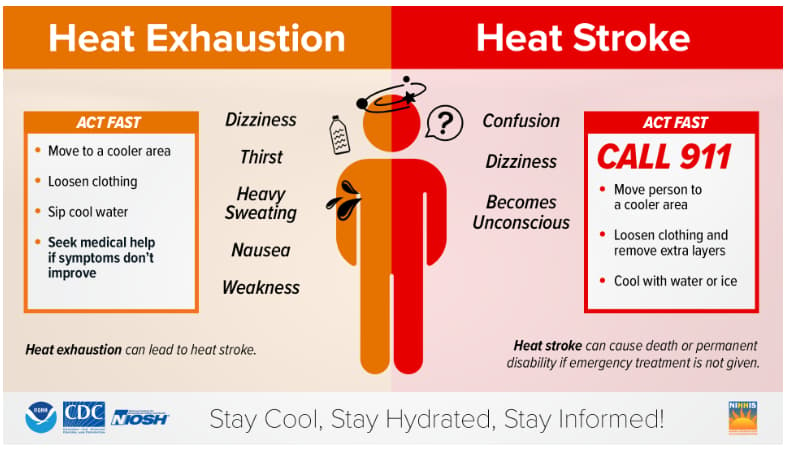
DM: Will Denver become more of a desert like in Arizona?
GH: I don't think we're going to end up like Phoenix where they regularly see temperatures of 115 and 120. They're also a higher elevation city and even more solidly locked in the land. There's less moisture around, less clouds and more solidly a desert. We're still on the fringe. We've got the plains to the East and we can get into that deeper moisture.
DM: Any final thoughts on the heat?
GH: If you're working or playing outside, be aware of the heat. Stay hydrated. Heat is becoming more of an issue for a lot of our cities up and down the Front Range, from Centennial up to Fort Collins. City officials have to plan more, opening cooling centers and things like that and that really wasn't much of an issue say 10 to 20 years ago.
Humans have evolved to one climate. What we had 50 or 100 years ago is not the same as we have now and we're feeling those effects and that's why the heat may be having a bigger impact on us now than it did previously. We haven't evolved to the current conditions. People living in Phoenix for a long time have been able to adapt to it but you know for us living around here in Denver, if you've been here a while it's a different summer then we had 10 or 20 years ago.


